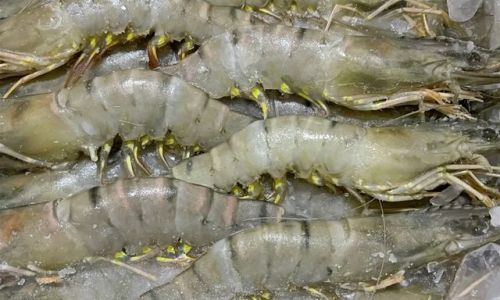Table of content
Pineapples, with their vibrant tropical flavor and juicy texture, are a beloved fruit worldwide. Whether enjoyed fresh, grilled, or blended into a refreshing beverage, their versatility makes them a staple in kitchens globally. However, one question often perplexes home cooks and fruit enthusiasts alike: Can pineapples be refrigerated? This article delves into the science of pineapple storage, explores the impact of refrigeration on their taste and texture, and provides actionable tips to maximize their shelf life.
Understanding Pineapples: A Brief Overview
Before addressing refrigeration, it’s essential to grasp the basics of pineapple biology. Native to South America, pineapples (Ananas comosus) are tropical fruits that thrive in warm, humid climates. Unlike many fruits, pineapples do not continue to ripen significantly after harvest. This characteristic means that the ripeness of a pineapple at the time of purchase largely determines its eating quality.
A ripe pineapple boasts a golden-yellow hue, a sweet aroma, and a slight give when gently squeezed. However, determining ripeness can be tricky, as the fruit’s exterior may appear green even when fully mature. This uniqueness underscores the importance of proper storage to preserve its flavor and prevent spoilage.

The Case for Refrigeration: Pros and Cons
The debate over refrigerating pineapples hinges on balancing freshness with texture retention. Here’s a breakdown of the key considerations:
Preserving Freshness
Refrigeration slows down the enzymatic processes that cause fruits to deteriorate. By storing pineapples in a cold environment (ideally between 35–40°F or 2–4°C), you can extend their shelf life by several days. This is particularly beneficial for cut pineapple, which is more prone to spoilage due to exposed flesh.
Texture Changes
While refrigeration delays spoilage, it can alter the texture of pineapple. The cold temperatures may cause the fruit’s cell walls to break down slightly, resulting in a softer consistency. For some, this is a minor trade-off for prolonged freshness; for others, it’s a deal-breaker, as they prefer the crispness of room-temperature pineapple.
Flavor Preservation
Pineapples contain volatile compounds that contribute to their distinct aroma and taste. Refrigeration can temporarily dull these flavors, but the effect is usually reversible. Allowing refrigerated pineapple to return to room temperature before consuming it often restores much of its vibrant taste.

Ethylene Gas and Ripening
Pineapples produce ethylene gas, a natural hormone that accelerates ripening. In a confined space like a refrigerator, ethylene can build up, potentially leading to overripening. To mitigate this, store pineapples in the crisper drawer, where ventilation is optimized, or wrap them loosely in plastic to limit gas exposure.
Storing Whole Pineapples: Best Practices
For whole, uncut pineapples, refrigeration is generally unnecessary if you plan to consume them within a few days. However, if you need to extend their life beyond 4–5 days, the refrigerator can help. Here’s how to do it right:
- Avoid Washing Before Storage: Excess moisture promotes bacterial growth. Wipe the exterior with a dry cloth instead.
- Use a Perforated Plastic Bag: Place the pineapple in a bag with small holes to allow airflow while preventing dehydration.
- Store Upright: This prevents bruising and ensures even cooling.
- Monitor for Spoilage: Check for soft spots, mold, or an off-putting odor regularly.
Storing Cut Pineapple: Maximizing Longevity
Cut pineapple requires more careful handling. Once sliced, the fruit’s flesh is exposed to air and microorganisms, accelerating spoilage. Refrigeration becomes almost essential in this case. Follow these steps:
- Remove the Core: The core is fibrous and less flavorful. Discarding it reduces bulk and improves storage efficiency.
- Use Airtight Containers: Glass or BPA-free plastic containers with tight-fitting lids minimize air exposure.
- Submerge in Juice (Optional): For extra freshness, store cut pineapple in its natural juice. This creates a protective barrier.
- Consume Within 3–5 Days: Even in the fridge, cut pineapple’s quality declines after this period.
Freezing Pineapple: A Long-Term Solution
If you have an abundance of pineapple or want to preserve it for future use, freezing is an excellent option. Here’s how:

- Peel and Core: Remove the tough outer skin and inner core.
- Cut into Chunks: Smaller pieces freeze and thaw more evenly.
- Blanch (Optional): Briefly boiling the pineapple (30–60 seconds) before freezing can help retain color and texture.
- Use Freezer-Safe Bags: Remove excess air to prevent freezer burn.
- Label and Date: Frozen pineapple lasts 8–12 months but is best used within 6 months for optimal quality.
Signs of Spoilage: When to Toss Pineapple
Knowing when to discard pineapple is crucial for food safety. Look out for:
- Soft Spots or Discoloration: Bruised or darkened areas indicate microbial activity.
- Foul Odor: A fermented or alcoholic smell signals spoilage.
- Mold Growth: Fuzzy patches, even if localized, warrant immediate disposal.
- Excessive Juice Leakage: This suggests cellular breakdown and potential contamination.
Debunking Myths: Common Misconceptions About Pineapple Storage
Myth 1: Refrigeration Makes Pineapples Tasteless
While cold temperatures can temporarily mute flavors, the effect is not permanent. Allowing refrigerated pineapple to sit at room temperature for 15–30 minutes before eating restores much of its sweetness and aroma.
Myth 2: Pineapples Should Never Be Refrigerated
This belief stems from the fruit’s tropical origin. However, modern refrigerators are designed to mimic cool, stable environments without freezing, making them safe for short-term storage.
Myth 3: Cut Pineapple Can Last Indefinitely in the Fridge
Even with proper storage, cut pineapple’s quality diminishes over time. Always adhere to the 3–5 day guideline.

The Impact of Refrigeration on Nutritional Value
Pineapples are rich in vitamin C, manganese, and bromelain—an enzyme with anti-inflammatory properties. Does refrigeration affect these nutrients?
- Vitamin C: This water-soluble vitamin is sensitive to light and air but relatively stable under refrigeration.
- Bromelain: Cold temperatures may slightly reduce enzyme activity, but the loss is negligible for culinary purposes.
- Antioxidants: These compounds remain largely intact when stored properly.
In short, refrigeration preserves the nutritional benefits of pineapple without significant degradation.
Creative Ways to Use Refrigerated Pineapple
Refrigerated pineapple’s slightly softer texture can be an advantage in certain recipes:
- Smoothies: Blend with yogurt, spinach, and almond milk for a nutrient-packed drink.
- Salsas: Combine with jalapeños, cilantro, and lime for a tangy topping.
- Grilled Desserts: Marinate in honey and cinnamon, then caramelize on the grill.
- Infused Water: Add chunks to pitchers of water for a hint of tropical flavor.
Conclusion: To Refrigerate or Not to Refrigerate?
The answer depends on your timeline and preferences. For whole pineapples, room temperature storage is ideal for short-term use, while refrigeration extends freshness by 4–7 days. Cut pineapple, however, benefits significantly from refrigeration, as it halts bacterial growth and enzymatic browning.

Ultimately, the key to enjoying pineapple at its best lies in understanding its unique characteristics and adapting storage methods accordingly. Whether you prefer your pineapple chilled or at room temperature, proper handling ensures that this tropical gem remains a delightful addition to your meals.
By following the guidelines outlined in this article, you can confidently answer the age-old question: Yes, pineapples can be refrigerated—and doing so can help you savor their sweet, tangy goodness for days to come.






0 comments